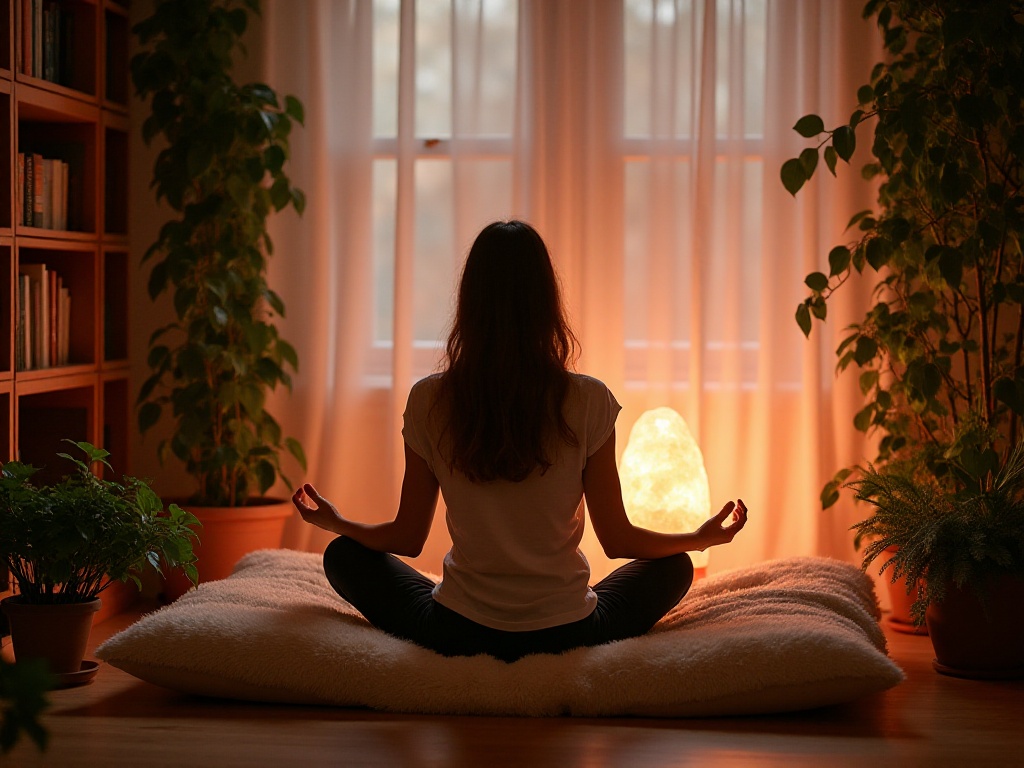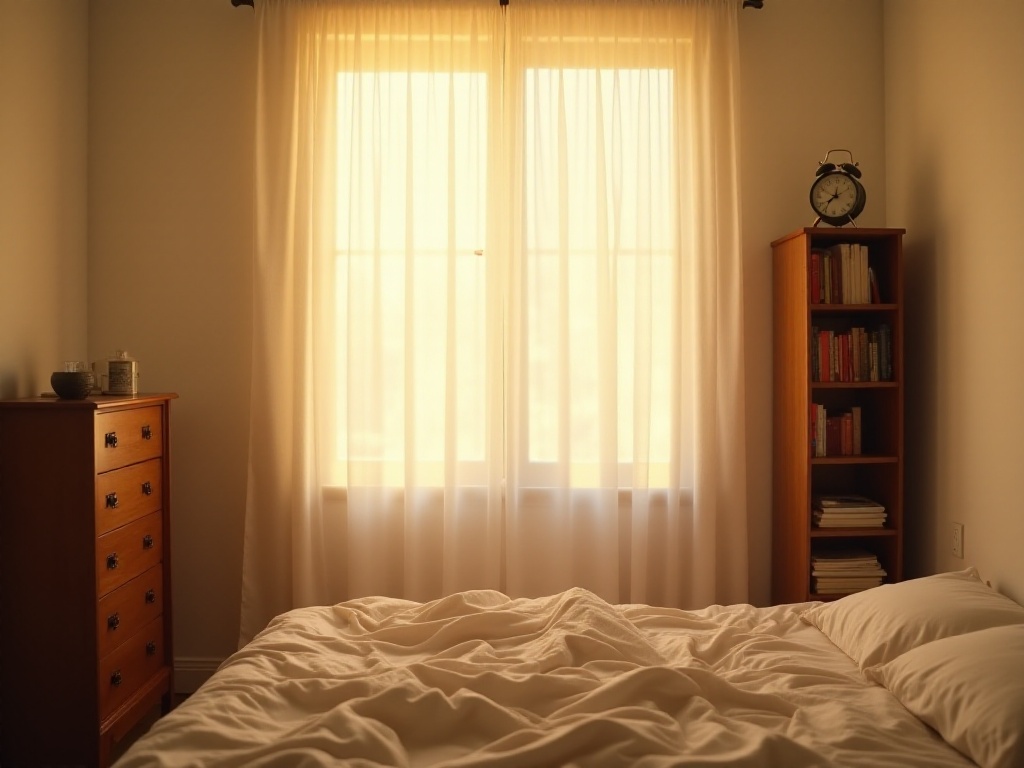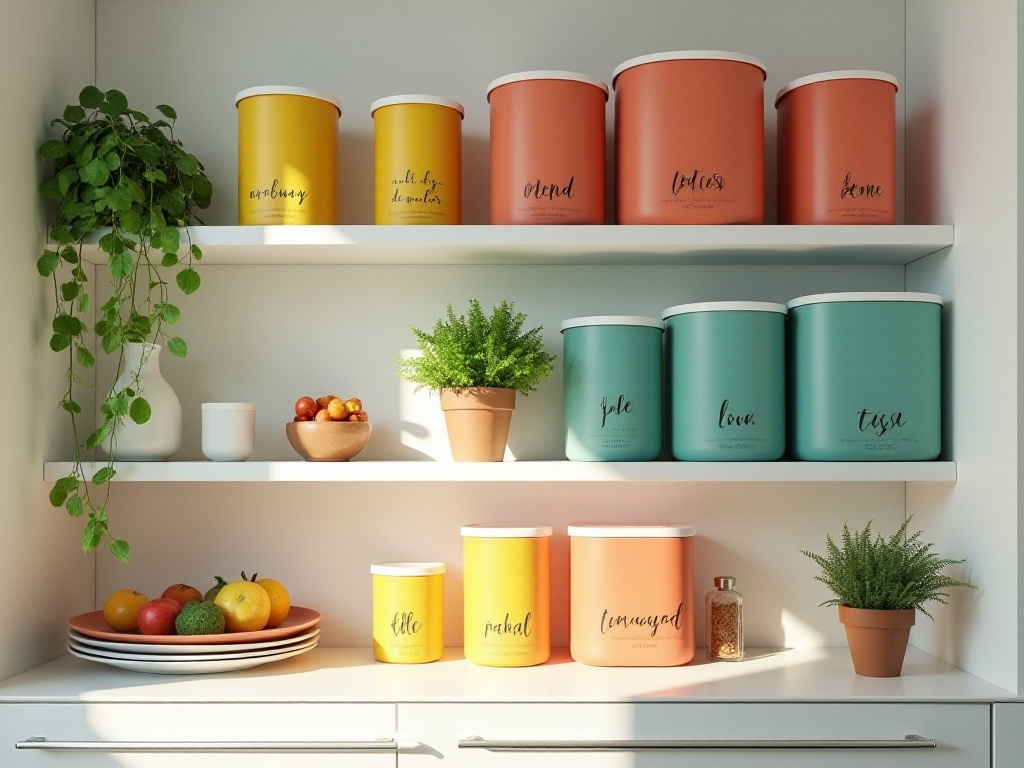Opening Words
Recently while scrolling through TikTok, I've seen many people complaining about the fast pace of life, feeling like they're "operating beyond capacity" every day. At work, they're chasing various deadlines, and at home, they still need to clean the house, cook, and do laundry. Even finding time to scroll through their phones feels like a luxury. I understand this feeling so well! I used to be just like that, feeling like there wasn't enough time every day, with my whole being in an overdrawn state.
But later I discovered that through some small changes and adjustments, you can completely make life more relaxed and orderly. The key is that these changes aren't difficult, but they need to be executed persistently. Just like the "transformation" stories we often see on Xiaohongshu, changes often happen when we least expect them. Today I want to share with you how I improved my quality of life dramatically through these small changes.
The Morning Revolution
Honestly, before developing an early-rising habit, I really envied those who could wake up early. "The Success Principles of Morning People" mentions that early risers are on average 23% more efficient at work than late risers. This statistic really shocked me! But knowing is one thing, actually doing it is another matter. I remember once watching a content creator on Bilibili sharing his early-rising experience, saying he became a completely different person after persisting for a month. At that time, I wondered, why couldn't I do it too?
So I started researching various methods for waking up early. At first, I also struggled, hitting snooze and continuing to sleep, often ending up sleeping until I naturally woke up. Until I discovered a particularly effective method - putting the alarm clock somewhere out of reach, preferably where you need to get out of bed to reach it. This trick is really amazing! Because you have to climb out of bed to turn off the alarm, and by the time you've walked to the alarm, your drowsiness is basically half gone. Plus, during this process, your body has already started moving, blood circulation has increased, and naturally, it's not easy to fall back asleep.
I also discovered another secret to making early rising easier, which is preparing things you'll need the next day in advance. This is really super important! Research shows that people's decision-making ability in the morning is 15% lower than at other times. Think about it, when the brain has just "booted up" and all functions haven't fully recovered, it's indeed a bit demanding to make choices. So now I prepare everything like clothes, bags, and keys the night before, so I can use them right away when I get up in the morning.
Moreover, I created a morning ritual for myself. After getting up, I first drink a cup of warm water, then do 10 minutes of simple stretching, followed by a warm shower. After going through this routine, I'm completely awake. They say drinking warm water in the morning not only helps the body eliminate metabolic waste but also promotes intestinal movement. Also, showering in the morning rather than at night makes it easier to stay alert.
Oh, and there's another particularly important point which is sleep quality. I found that many people have difficulty waking up early mainly because of poor sleep quality. To improve this, I've tried many methods. For example, not looking at my phone after 11 PM (blue light affects melatonin secretion), taking a hot bath before bed to relax, and not using my phone in bed, just purely sleeping.
After sticking to these small habits, I found my sleep quality indeed improved a lot. Before, I always felt I wasn't getting enough sleep, now 6-7 hours can keep me energetic throughout the day. Plus, waking up early brought an unexpected benefit: I finally had my own alone time. During this time, I can quietly drink coffee, read a book, or simply plan what I need to do today. This feeling is really great, like pressing a gentle pause button on life.

Home Life Tips
Speaking of home life, perhaps the most headache-inducing thing is finding things? Sometimes you clearly remember putting something somewhere, but when you need it, you just can't find it anywhere. According to statistics, ordinary people spend over 150 hours per year looking for things. This data really scared me - 150 hours! Think about it, if you used this time to do something else, like learning a new skill or cultivating a hobby, how great would that be.
To solve this problem, I now implement a "return items to their place" system at home. Simply put, it means assigning a fixed position for everything at home and returning items immediately after use. Sounds simple, right? But actually executing it still requires some willpower. At first, I often forgot and would just put things down randomly after using them. But I set a principle for myself: if I find something not in its proper place, I correct it immediately. Gradually, this habit formed.
Now my home's storage system can be said to be quite complete. Personal items like keys and wallets all have dedicated storage boxes placed on the entrance cabinet; kitchen seasonings are stored by frequency of use, with commonly used ones in easily accessible positions; clothes in the closet are organized by season and type, and even used hangers have fixed positions. This not only makes finding things super easy but also keeps the house looking neat and tidy.
Speaking of housework, cooking is definitely a major project. My favorite little trick is "clean as you cook." For example, while waiting for water to boil, instead of scrolling through your phone watching videos, why not wash the utensils you've already used or put seasonings back in their places. This way, after cooking is done, the kitchen is basically clean. Plus, this method makes the cooking process more focused and less boring.
I've also developed a "batch processing" principle. That is, if you're going to do something, do more of it. For instance, on weekends I prepare more food, enough for about 3-4 days. This way, when I get home on workdays, I don't need to busy myself with cooking, just simple reheating is enough. According to statistics, this method saves me an average of 4-5 hours of kitchen time per week. I usually use this saved time to read books or learn something interesting.
Oh, speaking of storage, I recently discovered a particularly useful method, which is regular organizing. Every month, I take a weekend afternoon to check the items in my home. Throw away what needs to be thrown, store away what's not frequently used, ensuring everything serves its purpose. This habit not only keeps the home tidy but also gives me a clear understanding of my possessions, avoiding repeat purchases or hoarding useless things.
I also have my own tricks for doing laundry. I sort clothes by color and material, which not only prevents color bleeding but also allows me to choose appropriate washing methods based on different clothing characteristics. I hang clothes immediately after washing, as I've found clothes left in the washing machine for too long develop odors. Plus, I now fold clothes while they're still slightly damp, which prevents wrinkles and saves ironing time.

Leisure Time
Many people might think that since it's leisure time, you should spend it however you want, why bother with efficiency? But I gradually discovered that if you don't plan your leisure time well, it's easy to fall into a cycle of "scrolling phone-watching shows-sleeping," and the weekend's two days just pass by unconsciously.
Recently, I've become particularly fascinated with a concept called "high-quality leisure." Simply put, it's about making leisure time produce some value rather than just killing time. For example, reading is a very good activity. You can choose topics you're interested in, both relax your mind and learn new knowledge. According to surveys, people who read for 30 minutes daily have 28% lower stress levels than those who don't read. Now I read for half an hour before bed every day, and gradually developed this habit, feeling my knowledge base is constantly expanding.
If you want to go out and be active, hiking is a particularly good choice. It doesn't require special equipment or money, but lets you enjoy the dual benefits of exercise and nature. Research shows that walking in a natural environment for 20 minutes can significantly improve mood. I often arrange with friends to go to nearby parks or small hills for a walk on weekend mornings. Walking and chatting, we unknowingly exercise for an hour or two, and the mood is particularly pleasant.
Now my weekends are basically arranged like this: morning going out for a walk or exercise, afternoon maybe meeting friends to study together or participate in some interesting activities, evening quietly staying at home, reading or learning some new skills. This life rhythm makes me feel both fulfilled and relaxed.
I've also discovered an interesting phenomenon, which is that when you start paying attention to the quality of leisure time, you gradually discover many pleasures you hadn't noticed before. For example, learning a new skill might feel a bit difficult at first, but when you gradually master it, that sense of achievement is something that no amount of watching shows can give you.

Closing Words
Through this period of practice, I deeply realize that improving life efficiency isn't about making life busier, but about arranging time in a smarter way to make life more composed. It's like treating time as a container; what we need to do isn't to stuff more things into it, but to arrange existing things more reasonably.
Everyone's lifestyle is different, and the methods I've shared might not be completely applicable to everyone, but I believe that as long as we're willing to change, willing to try, we can always find the lifestyle that suits us best. After all, life is a process of continuous optimization and improvement, what's important is to start taking action.
Recently, I've been trying some new efficiency improvement methods, which feel quite interesting. If you're also interested in this topic, we can continue to exchange ideas. Maybe you also have some particularly good life tips to share with me!




